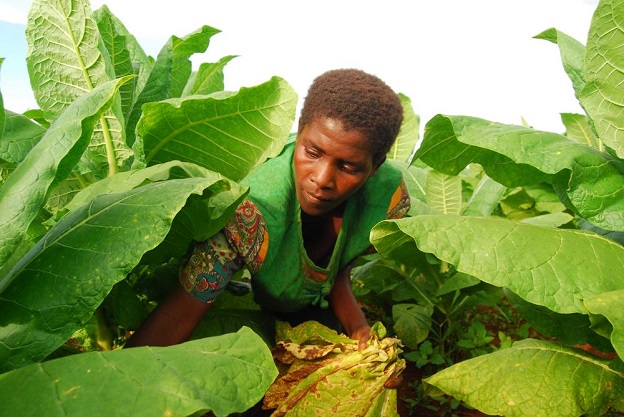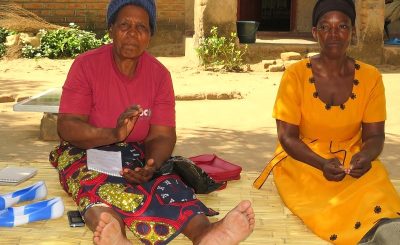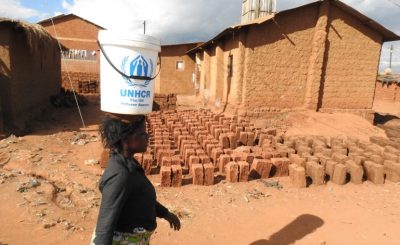The agricultural sector is falling apart with cash crops such as tea, cotton, coffee, tobacco and maize now yielding less than before, according to Farmers Union of Malawi (FUM) President Alfred Kapichira Banda.
Banda says the vision of having a different and rewarding agricultural sector continues to remain a far-fetched dream, resulting in fading hopes for most farmers -who are being exploited by government and agricultural development partners, in terms of market prices that farm proceeds are fetching nowadays.
Status Quo
The FUM leader, who is also a farmer, says farming -which for decades has been Malawi’s major source of revenue- is dying due to what he describes as ‘failure by government to keep agriculture active in the business line’.
“Farmers are being robbed, it’s the buyers who are benefiting at the expense of farmers and it is a pity that even government is failing to protect farmers,” he says.
It is a known fact that Malawi, after the end of British colonization, had no second thought but to continue with farming in fear of going back to the tendency of begging from the former colonial master’s government.
Hard work in the field became the song of the founding father of the Republic of Malawi, Dr. Hastings Kamuzu Banda, just to make Malawians aware that agriculture was the only major source of bread and batter.
“Independence does not mean money will rain on our head from heaven, it means working hard in the fields with hoes and axes,” Dr. Banda said in his speech during one of his developmental rallies in the 1960s.
With this perspective, Malawi’s economy turned predominantly agricultural with about 90% of the population relying on agriculture for income and it really proved that thriving on farming was possible.
However, over the past years Malawi’s economic reliance on rain-dependent agriculture has left the country’s economy turbulent, leading to declining terms of income in most cash crops like coffee, cotton and tea.
Kapichira Banda attributes this to the lack of political will in sustaining agriculture, as the sector has consequently become a waste of time and energy.
“We are in deep waters as most farmers are no longer interested in farming. You can see how prices of most farm products have gone miserably down,” the outspoken FUM president moans.
Discovery
A snap survey conducted by YFM online has concurred with Banda that famers -who contribute more to the country’s Gross Domestic Product (GDP) are not rewarded for their sweat with good prices each year, instead they are exploited.
Hannock Nyozani, a farmer from Traditional Authority (T/A) Chikowi in Zomba, attests to how unprofitable farming has become in her area.
“Here we benefit from fertilizer loans but when time comes to sell our maize the money we get is not enough to repay the loan, since ADMARC does not buy our produce; as a result, we sell to vendors at a very low price. Currently, our bags of pigeon peas are stuck in our houses failing to access a good market,” he moans.
Panto Pachepa, a tea farmer from Mulanje district, attests that now the cost of production in tea farming does not match with the market prices.
“The main challenge we are facing is that we invest a large capital, especially on fertilizer, but in the end we get less than what we invest,” he says.
In addition to this, Chief Executive Officer for African Institute of Corporate Affairs, Felix Lombe, states that the cotton industry is on its deathbed unless a miracle happens.
“Cotton production is on the verge of collapsing; if you look at the production rate, you will find that production in the past 10 years has dropped from 60,000 metric tons to 12,000 metric tons, as of last year,” Lombe says.
“The number of people that are getting jobs from the sector has also dropped to 300 from 15, 000 in the past 10 years. All the parameters are going in a wrong direction, even forex generation has gone down from $40 million to $1.4 million. This is all because farmers are failing to get quality seeds and good markets.”
A visit to Chikwawa district -which contributes over 50% of the population of cotton growers in the country- proved that indeed most cotton farmers have hang up their tools due to unavailability of seeds, pesticides, low market prices and poor road networks.
As if this is not enough, road networks in some agriculture practicing areas are in poor conditions and state of repair; thereby giving a pinch of transportation and communication challenges to farmers.
A visit by YFM online to Mulanje South West established that over seven bridges were washed away during the 2015 flood horrors, cutting off any means of transport for the farmers, especially during the rainy season.
“Mobility is quite a big challenge here and it’s always hard to transport our products during the rainy season. We travel long distances to purchase farm inputs and it is a nightmare to reach to our farms,” Flora Misokwe, a female farmer says.
In agreement with this, Juwawo Maliko from Nsanje says: “By the time we get to the market we are told that our cotton has gone bad for keeping it for too long. Sometimes it gets soaked by the rains on the way, hence we are forced to sell it at a very low price.”
Remedy
In the view of Chancellor College-based economic expert, Ben Kalua, the issue lies in the hands of policy makers in the ministry of agriculture and stakeholders, bearing in mind that this same agriculture once made the Malawi kwacha equal to the US Dollar in the 1980’s.
Meanwhile his quick remedy to the situation is on diversifying the country’s export base.
“Despite government having signed the said Memorandum of Economic Development, which among others seeks to commercialize agriculture, it will also be important to utilize the export opportunity in other countries like India, in order to give a lease of life to farmers who are crying foul,”, explained Kalua.
Food for thought
Agriculture is failing, mining is not picking, the level of unemployment is just too high, electricity power outages have failed entrepreneurs, and now the question could be – if agriculture completely fades out, what will sustain Malawians?





